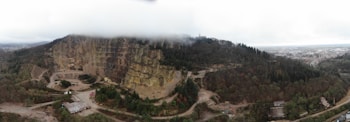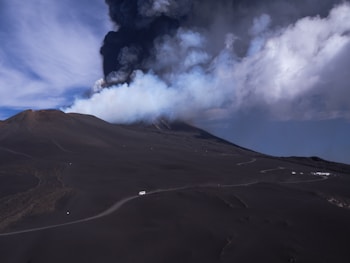 Learn Spanish: Environmental Problems & Natural Disasters
Learn Spanish: Environmental Problems & Natural Disasters
An introduction to Spanish vocabulary and phrases focused on environmental problems and natural disasters. Suitable for beginners.
proteger el medio ambiente
The Spanish phrase 'proteger el medio ambiente' translates to 'protect the environment' in English. It's an active verb phrase where 'proteger' means 'to protect', 'el' is the definite article 'the', 'medio' translates to 'middle' or 'among' but in this context it means 'environment', and 'ambiente' loosely translates to 'setting' or 'surroundings'. Hence, when strung together, it means 'to protect the environment', highlighting the environmental awareness and responsibility to maintain and preserve the natural world.
Example sentences with proteger el medio ambiente →proteger la naturaleza
The Spanish phrase 'proteger la naturaleza' directly translates to 'protect nature' in English. This phrase is a call to action inviting individuals to actively participate in conservation efforts to maintain and safeguard the environment. By following this principle, one can contribute to the overall health and longevity of our natural world.
Example sentences with proteger la naturaleza →protegerse de la radiación solar
The Spanish phrase 'protegerse de la radiación solar' translates to 'protect from solar radiation' in English. It refers to seeking shelter or using protection against the harmful ultraviolet rays emitted by the sun. This might include wearing protective clothing, using sunscreen, or staying in the shade during the peak hours of sunlight.
Example sentences with protegerse de la radiación solar →provocar un incendio
The Spanish phrase 'provocar un incendio' translates to 'provoke a fire' in English. This phrase might be used when discussing how a fire starts. It could be used in different contexts such as a physical fire, or metaphorically in the sense of causing a disruption or a chaotic situation. Note that 'provocar' can mean 'provoke' or 'cause' based on context, 'un' is 'a', and 'incendio' is 'fire'.
Example sentences with provocar un incendio →
reciclaje
The Spanish word 'reciclaje' translates to 'recycling' in English. Recycling is the process of converting waste materials into new materials and objects. It is an alternative to 'conventional' waste disposal that can save material and help lower greenhouse gas emissions. Recycling can prevent the waste of potentially useful materials and reduce the consumption of fresh raw materials, thereby reducing: energy usage, air pollution (from incineration), and water pollution (from landfilling).
Example sentences with reciclaje →reciclar cartón
The Spanish term 'reciclar cartón' translates to 'recycle carton' in English. It is used to describe the activity where cartons, usually made of cardboard or paper, are collected and transformed through a process to be reused. This is part of waste management and is particularly crucial for environmental conservation.
Example sentences with reciclar cartón →reciclar latas
Reciclar latas is a Spanish phrase that translates to 'recycling cans' in English. It's a concept that encourages reprocessing and reusing metal containers that were previously used for storing food, beverages, and other products. The aim is to reduce waste and save resources, a practice that's widely accepted and promoted globally for its environmental benefits.
Example sentences with reciclar latas →reciclar papel
The phrase 'reciclar papel' in Spanish translates to 'recycling paper' in English. This is a term that describes the process of converting waste paper into new paper products. It is an important strategy to implement for waste management and environmental protection. By recycling paper, we can reduce the amount of waste going to landfill and save trees from being cut down for raw material for making new paper.
Example sentences with reciclar papel →reciclar pilas
The Spanish term 'reciclar pilas' translates to 'recycle batteries' in English. This is a commonly used phrase in regards to e-waste management and environmental conservation. It consists of 'reciclar', which means to recycle, and 'pilas', which means batteries. Its usage is prevalent in urging people to dispose batteries in a responsible and environmentally friendly manner.
Example sentences with reciclar pilas →reciclar vidrio
The term 'reciclar vidrio' translates to 'recycle glass' in English. It is a common phrase used in Spanish speaking regions to encourage the practice of sustainability and environmental preservation. This refers to the process of converting waste glass into new products. This recycling process helps in reducing raw material waste and energy consumption that is typically associated with making new glass.
Example sentences with reciclar vidrio →recursos naturales
The Spanish term 'recursos naturales' translates to 'natural resources' in English. These are resources that exist without any human intervention and occur naturally within environments. They include things like water, soil, wood, vegetation, animals, and fossil fuels. Natural resources are utilized by humans for various purposes, including energy production, manufacturing, and the provision of food and shelter. It is essential for human civilization but needs to be carefully managed to prevent depletion and to maintain a balanced environment.
Example sentences with recursos naturales →
reforestar los bosques
The phrase 'reforestar los bosques' in Spanish translates to 'reforest the forests' in English. It implies the process of planting new trees in areas where they have been cut or destroyed, typically as part of conservation efforts. This is known as reforestation in English. Actions under 'reforestar los bosques' contribute towards environmental sustainability, helping to combat climate change and preserve ecosystems for future generations.
Example sentences with reforestar los bosques →repoblar los bosques
The Spanish phrase 'repoblar los bosques' directly translates to 'repopulate the forests' in English. However, in a slightly more conversational sense, it could also be interpreted as 'replenish the forests'. This phrase is commonly used when discussing conservation efforts, particularly the planting of trees to restore forests that have been cut down or otherwise depleted. In other words, 'repoblar los bosques' refers to the act of bringing back life to the forests by introducing more trees and plants.
Example sentences with repoblar los bosques →residuos atómicos
The term 'residuos atómicos' in Spanish translates to 'atomic waste' in English. 'Atomic waste', also referred to as 'nuclear waste', is a kind of waste that results from nuclear reactions. It contains radioactive materials and is a byproduct of processes related to nuclear technology such as nuclear fission, medicine, and nuclear power production. 'Residuos atómicos' or 'atomic waste' is often categorized based on its radioactivity level, with some varieties requiring specialized long-term storage due to high levels of radioactivity.
Example sentences with residuos atómicos →residuos radiactivos
The term 'residuos radiactivos' in Spanish translates to 'radioactive waste' in English. Radioactive waste is a type of hazardous waste that contains radioactive material. It is usually produced by nuclear power plants, nuclear technology research and development institutions, and nuclear medicine procedures. It needs to be properly managed and disposed of to prevent harm to human health and the environment due to its highly dangerous nature.
Example sentences with residuos radiactivos →residuos tóxicos
The term 'residuos tóxicos' translates to 'toxic waste' in English. It refers to unwanted and hazardous materials produced by industrial, agricultural, and residential actions. These materials, if improperly managed, pose a significant risk to the environment and public health. Toxic waste includes heavy metals, pesticides, chemicals, solvents, and certain types of radioactive materials. Proper disposal methods are crucial to mitigating the potential negative impacts of toxic waste.
Example sentences with residuos tóxicos →respetar el medio ambiente
The Spanish phrase 'respetar el medio ambiente' translates to 'respect the environment' in English. This phrase denotes the belief in maintaining balance in the environment by not causing harm or overusing natural resources. It promotes eco-friendly activities, sustainability, and responsible actions that will not bring destructive impacts on the environment. The verb 'respetar' means to respect, 'el medio' means the environment, and 'ambiente' stands for atmosphere or surrounding.
Example sentences with respetar el medio ambiente →respetar la naturaleza
The Spanish phrase 'respetar la naturaleza' translates to 'respect nature' in English. This phrase aligns with the idea of sustainability and environmental consciousness, encouraging individuals to show consideration and care for the natural world. This might include actions such as minimizing waste, conserving resources, and protecting plants and wildlife.
Example sentences with respetar la naturaleza →
sequía
The word 'sequía' refers to a prolonged period of abnormally low rainfall, leading to a shortage of water. It is commonly used to describe a condition where there is not enough rain for a long period, resulting in a deficiency of water for plants, humans and animals. In English, this is called a 'drought'.
Example sentences with sequía →temblar (la tierra)
The Spanish term 'temblar (la tierra)' translates to 'shaking (the earth)' in English. It is commonly used to depict the natural movement or quaking of the earth's crust, usually due to seismic activities such as earthquakes. Other contexts can include vibrations or disturbances on a surface or area acting as a metaphor which could be physical, emotional, or sociopolitical in nature.
Example sentences with temblar (la tierra) →temblor de tierra
The Spanish term 'temblor de tierra' translates to 'earth tremor' in English. This is a term used to describe a small or light earthquake, where the shaking or trembling of the earth's surface is brief and not very extreme. Earth tremors are often not severe enough to cause damage, but they are usually felt by people, especially if they occur near populated areas. Temblors de tierra can occur naturally or may be caused by human activities such as mining or the extraction of oil and gas.
Example sentences with temblor de tierra →
terremoto
The Spanish term 'terremoto' translates to 'earthquake' in English. This denotes a sudden and violent shaking of the ground, often the result of seismic activity beneath the Earth's surface, such as volcanic eruptions or the release of built-up stress within the Earth's crust. Earthquakes can cause significant damage to buildings and other structures, resulting in loss of life and property. They are a natural disaster commonly studied within the field of geology.
Example sentences with terremoto →tratar el agua
The Spanish phrase 'tratar el agua' translates to 'treat water' in English. This term is commonly used to refer to the process of making water safe for drinking and bathing. It involves a variety of methods including filtration, disinfection, and adding chemicals to kill harmful pathogens.
Example sentences with tratar el agua →tratar los residuos
The Spanish phrase 'tratar los residuos' translates to 'treat waste' in English. This phrase is commonly used in the context of waste management, where 'tratar' means 'to treat' or 'to process', and 'residuos' refers to 'waste' or 'residue'. Therefore, 'tratar los residuos' would refer to the processes or actions carried out to manage waste safely and efficiently.
Example sentences with tratar los residuos →
tóxico
The Spanish word 'tóxico' translates to 'toxic' in English. The term is predominantly used to describe materials or substances that can pose a risk to health or the environment due to their harmful or destructive properties. It can also be metaphorically used in social contexts to describe a harmful or damaging situation or relationship, indicating a damaging influence that promotes unhealthy behaviors or attitudes.
Example sentences with tóxico →vertedero
The Spanish word 'vertedero' refers to a place where waste materials, especially the ones that are not needed anymore, are disposed, which is known commonly in English as a dump. It may also refer to a dumping process. This includes areas like landfills or recycling centers where garbage, waste, and other discarded materials are deposited. Overall, 'vertedero' implies an act of disposal and the location where the disposal takes place.
Example sentences with vertedero →vidrio reciclado
The Spanish term 'vidrio reciclado' translates to 'recycled glass' in English. This term is used to describe glass materials that have been collected, sorted and processed to be melted down and reused. Recycled glass is often used in the production of new glass containers, fiberglass insulation, and various other applications. The recycling process reduces the amount of waste going to landfills and also helps in conserving natural resources.
Example sentences with vidrio reciclado →zona protegido
The Spanish term 'zona protegida' translates to 'protected area' in English. This phrase is often used in the context of environmental conservation to denote regions of land or water specifically dedicated to the protection of biodiversity, natural, cultural or historical resources. These areas may be established by national governments or international treaties and can include wildlife reserves, national parks, and marine protected areas. The exact laws and rules governing these areas can vary widely from case to case.
Example sentences with zona protegido →área protegido
The term 'área protegido' is translated as 'protected area' in English. It refers to a location which receives protection because of its recognized natural, ecological, or cultural values. These areas can be found all over the world and are often set aside for the purposes of conservation, to preserve the living, non-living, cultural, and natural resources that are inherent in the zone. Examples might include nature reserves, parks, and biosphere reserves.
Example sentences with área protegido →área virgen
The Spanish term 'área virgen' translates to 'virgin area' in English. The term is typically used in ecological or geographical contexts to refer to a piece of land, territory, or environment that has not been significantly affected or altered by human activities. It suggests a pristine and untouched condition, often associated with intact ecosystems, untouched nature reserves, or undisturbed habitats where human influence is minimal or non-existent. An 'área virgen' might thus refer to a wilderness area, a remote island, a deep-sea region, a high altitude mountain zone, or any other environment that remains in its natural state.
Example sentences with área virgen →